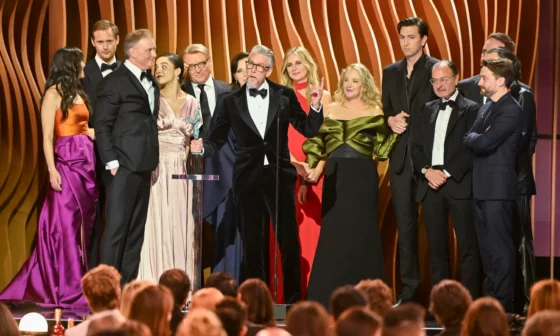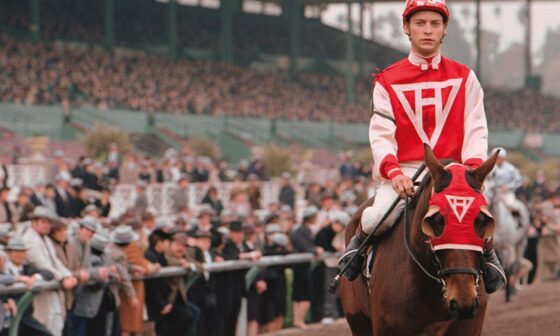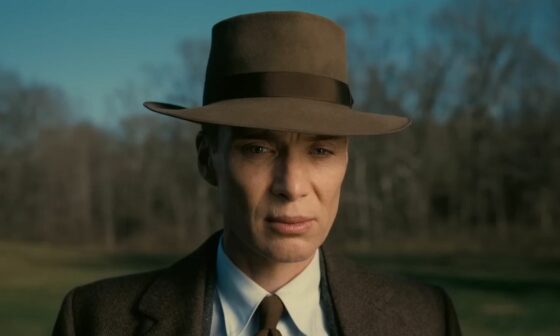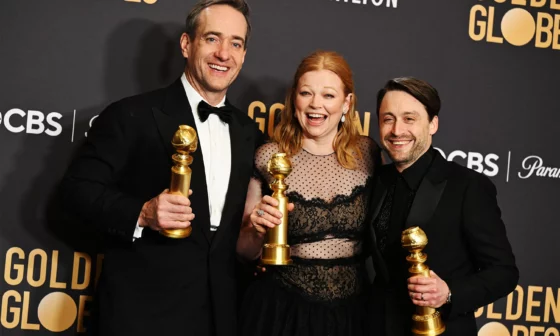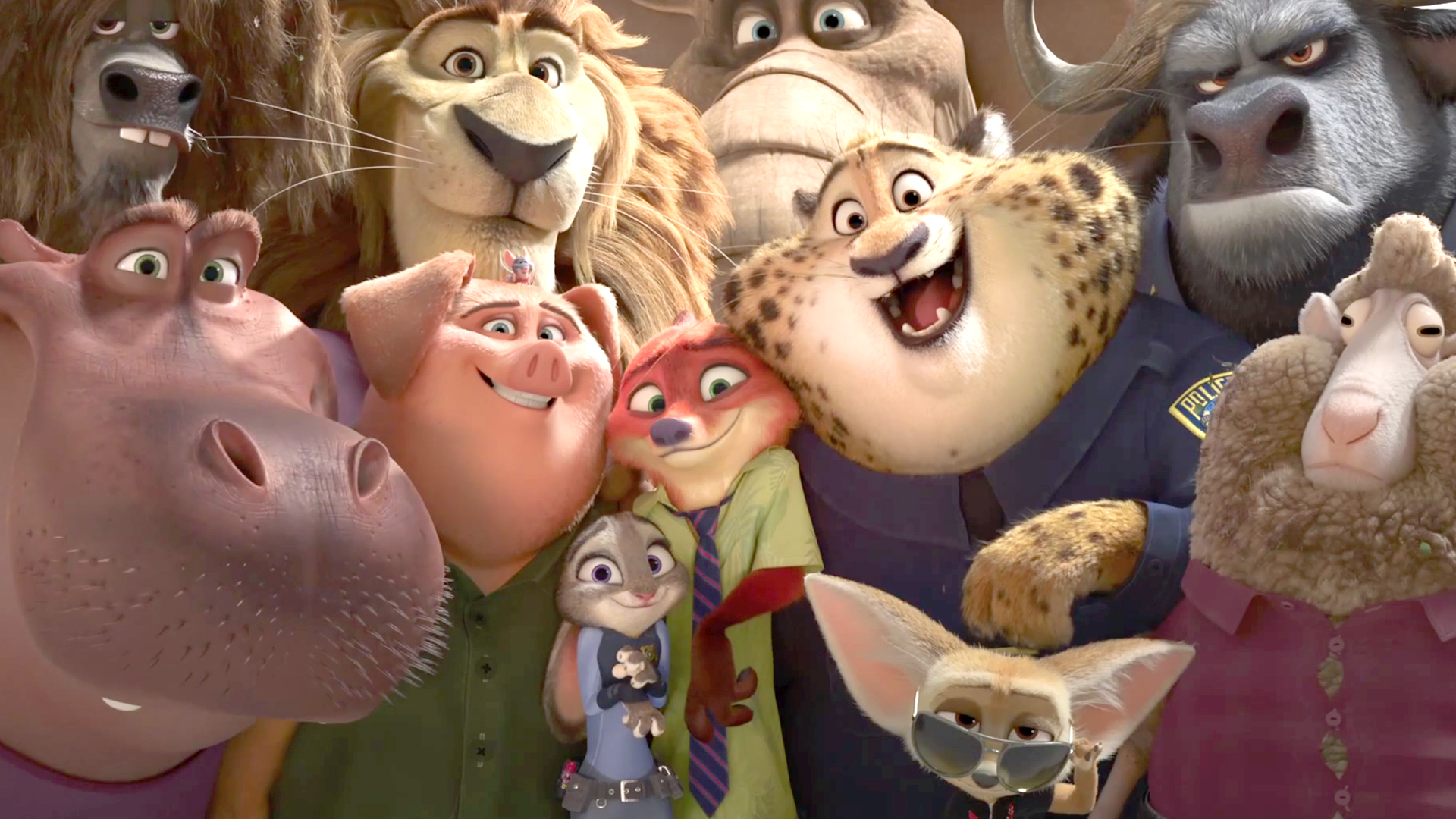
All great children’s films have a strong message behind them, but rarely do they say anything particularly revolutionary. It’s usually just slight variations on ‘be yourself’, ‘follow your dreams’, and ‘don’t let others get you down’. Don’t get me wrong, there are some films for kids that have stronger, more subversive messages than that, but there are many more that don’t even try.
Even Disney doesn’t always bother with an interesting moral, relying more on formula and heart to win audiences over than making them think. Frozen kind of changed their mindset on that, creating a perfect balance between traditional fairy tale magic and modernist perspectives on gender roles, and with Zootropolis (or Zootopia for any Americans that might be reading this) they’ve gone out of their way to make something equally conscious of our evolving world.
From the outset, Zootropolis doesn’t seem like a particularly original film. Anthropomorphic animals living in a human-style city is a long established idea, the buddy cop formula has been overdone to the point of monotony, and what seems like the initial message (an optimistic small-town girl proving she can stand up with the big city folk) prepared me for something acceptable but not astounding.
The film’s first half is very cute and certainly does a lot of inventive things with the richly detailed world it’s created, fashioning a lot of imaginative scenarios and gags about the animal kingdom without completely relying on stereotypes. But from a story perspective, it’s just a simple detective caper with plot elements we’ve seen as far back as the days of film noir.
However, by the film’s halfway point, it’s quite clear all of the familiarity was on purpose to set up what the movie is really about. What begins as a very kid-friendly buddy comedy seamlessly morphs into a social commentary about racial profiling that uses the tropes of cop movies and kids’ movies alike to subtly get across its message. It’s a feat that’s completely going to go over children’s heads, but for the adults in the audience it’ll be something they can appreciate and assure them that their kids have actually learnt something from the experience.
That doesn’t mean the film completely eschews formula from there, as the second half does still heavily rely on familiar plot beats and smart audience members will probably see the final villain reveal coming, but it uses them for power and emphasis rather than being lazy. By the story’s conclusion, Zootropolis completely destroys any preconceptions you may have had going into it by delivering a far richer film experience than anyone could suspect.
The buddy pairing of the by-the-book cop and the sleazy hustler they’re stuck with has been around since the genre began, and with the team of Judy Hopps (Goodwin) and Nick Wilde (Bateman) they don’t stray too far from the established formula. Ginnifer Goodwin has pretty much mastered the art of playing unbelievably nice people, and for the role of Hopps that brand of ‘gosh-darn’ wholesomeness works perfectly with the go-getter nature of the character.
On the other hand, Jason Bateman’s performance as Wilde is a great change of pace for the actor, who’s excellent at playing the roughneck con man but rarely ever gets the chance to do so; he’s mostly been stuck playing variations on Michael Bluth for the past ten years. The two do compliment each other well as complete opposites, but the characters ultimately work not because of their clashing personalities or lifestyles.
It’s because they both have inner prejudices of each other, and over the course of the film they learn to overcome those; again, a great example of how the film takes your expectations and flips them. However, the rest of the supporting cast doesn’t quite get as much subversive treatment. Idris Elba as the typical angry police captain comes off as way too harsh, mainly just to make Hopps’ situation more crushing and time-sensitive, and he never gets any sort of notable comeuppance for this behaviour.
J.K. Simmons feels a bit wasted as the city mayor, disappearing for large chunks of the movie despite being often talked about, and though the marketing made a big deal about Shakira being in the movie she only has one real scene; she’s basically just there to plug the soundtrack. That doesn’t mean there aren’t some bright spots in smaller roles, with Jenny Slate as the clumsy and put-upon mayoral assistant Bellwether being an often amusing presence, and Tommy ‘Tiny’ Lister’s brief appearance works as a hysterical disparity between character and voice.
When you usually see animals acting like people, all they do is throw clothes on them and have them walk on their hind legs. Zootropolis goes beyond that and creates a world that feels far more viable for these various creatures to co-exist in. It remembers variables between these different species like size, body temperature and habitat, in turn making for a film with a wide variety of environments to explore, and they take every advantage of this they can through inventive production design.
The animation quality is Disney perfection as expected, with rich detail in textures and fluid character movement. The sheer amount of varying characters on screen at once, all with unique details like varying speed and posture, further adds to the engrossing vibrancy of this world. Michael Giacchino’s score isn’t quite as memorable as many of his other works but it does help propel the film’s action, and Shakira’s theme song for the movie “Try Anything” is an enjoyable if clichéd pop song that fits the story’s message.
Of all the phrases I thought I’d use to describe Zootropolis, I never thought “socially relevant” would be one of them. Far more than just a fun family film with cute animals, this is a movie that feels important in the climate we live in where prejudice pervades almost every aspect of our daily existence.
It teaches kids that generalising a group based on a small number of radical exceptions is unacceptable, that people from certain backgrounds are capable of making their way in untraditional fields for them, and that we all sometimes make unintentional mistakes that could be seen as disrespectful to others. Those are some pretty deep themes for an animated Disney film, but for a company that lords over so much of our popular culture it’s momentous of them to make a statement like this.
I haven’t seen a film that cuts so deep like this since The LEGO Movie, and I’m sure that certain media groups are going to have a field day of claiming Disney is trying to indoctrinate kids with some sort of “agenda”, but they’re exactly the kind of idiots this film is against. If you’re a parent, take your kids to see Zootropolis not just because they’ll have a good time. Take them because it might make them better people.
#Peace.Love.Zootropolis



